Brexit: No substantive talks for 12 months, Herman Van Rompuy predicts
- Published
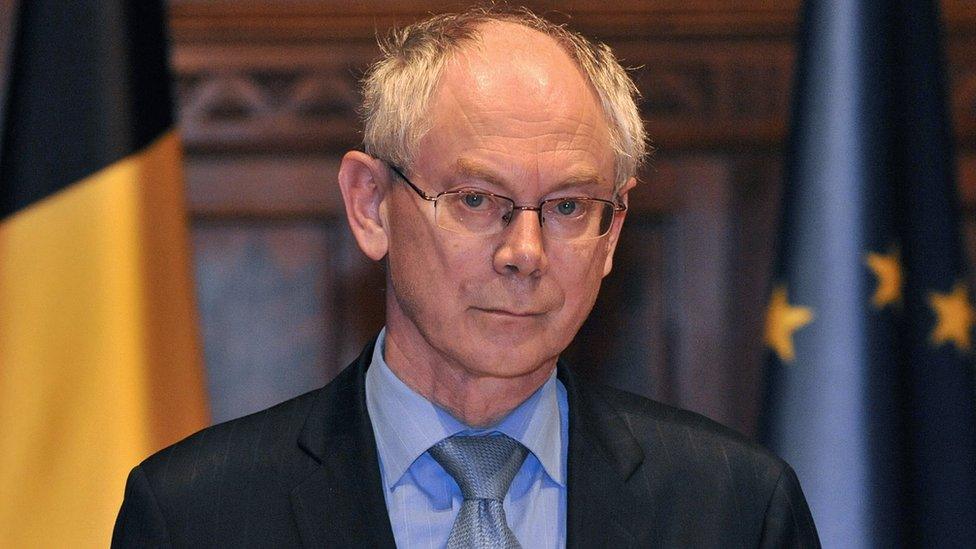
Herman Van Rompuy said Brexit had been a "political amputation of the first degree"
Substantive Brexit talks between the UK and the rest of the EU are unlikely to start much before the end of 2017, a former European Council president says.
Speaking to the BBC, Herman Van Rompuy said negotiations were unlikely until a new German government was formed after next September's election.
The talks will be tough but hopefully of mutual benefit, he said, adding the UK had to make the "first move".
He described the UK's decision to leave the EU as a "political amputation".
Meanwhile, leaders of every EU country, apart from the UK, are gathering in the Slovakian capital Bratislava to discuss the future of the bloc.
Cameron 'blocked' civil service Brexit talks
The UK voted by 51.9% to 48.1% to end its membership of the EU in a referendum on 23 June.
Prime Minister Theresa May has said that the government will not trigger Article 50 - the formal start of the process of leaving the EU - before 2017.
Ex-EU president Herman Van Rompuy says he warned David Cameron about the EU vote.
Mr Van Rompuy was president of the European Council, which defines the EU's overall political direction and priorities, from 2009 until 2014.
He told BBC Radio Four's Today programme: "Before the German elections and before there is a new German government, I think no serious negotiations will take place.
"You can always start with more technical matters, but the hardcore, the difficult topics, will be tackled after the constitution of a new German government and that will be October/November."
No 'Brexit effect' in latest jobs data
Brexit 'may bring difficult times' - PM
Mr Van Rompuy described the senior figures appointed to negotiate for the EU, who include Belgian ex-Prime Minister Guy Verhofstadt and French finance expert Michel Barnier, as "very very tough" but also "very pragmatic".
He denied leaders wanted to "punish" the UK for leaving, but said there was a desire not to encourage other countries to follow suit.
"Any negotiation will be a difficult negotiation, independent of the personalities. Of course we want an agreement which represents some kind of mutual benefit.
"There are huge economic interests, but there are also red lines. It is very well known that freedom of movement [of EU nationals] is a red line," he said.
'Not many friends'
Mr Van Rompuy rejected suggestions that the EU should have given former Prime Minister David Cameron a better deal after he sought reform of the UK's relationship with the EU, saying the main reason for the Brexit vote "lies in Britain".
And he said EU leaders had warned former Prime Minister David Cameron it would be a "mistake" to hold a referendum on membership.
He said the UK already had a "very special status" within the EU, which was illustrated by it not being a member of the eurozone or the Schengen Agreement.
But this meant it was also "not fully a member of the hardcore where decisions are taken".
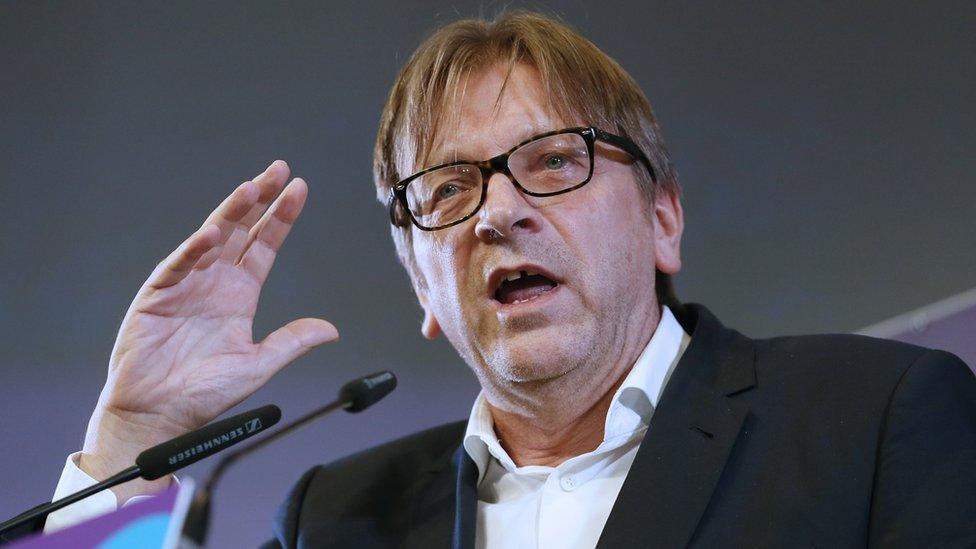
Guy Verhofstadt will be one of the EU's main Brexit negotiators
"Britain had not many friends anymore," Mr Van Rompuy said.
This had been shown during the election of Jean-Claude Juncker as President of the European Commission in 2014, when Britain was "isolated" in its opposition to him, he added.
Mr Van Rompuy said despite this, European leaders still viewed Brexit as a "political amputation of the first degree".
He added: "Because Europe was for many countries still a model, a model that you can achieve peace among peoples and states that waged wars for centuries, so it was a model of co-operation and integration.
"That image of a strong Europe, that is tarnished a lot after Brexit."
- Published4 September 2016
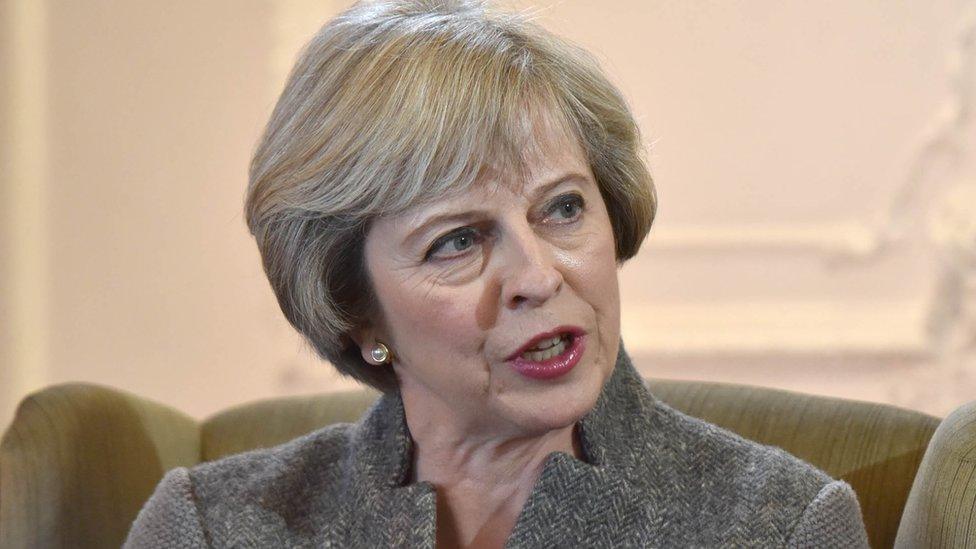
- Published14 September 2016
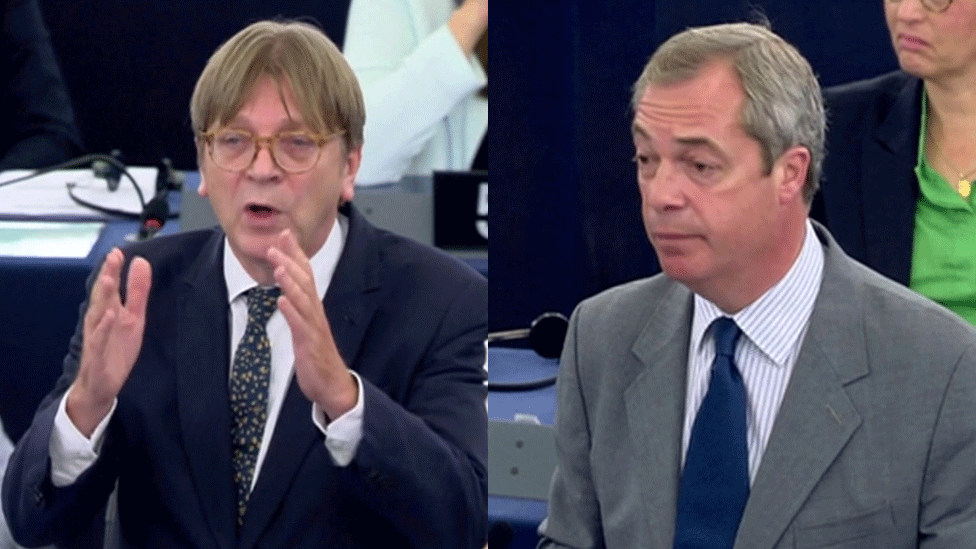
- Published8 September 2016
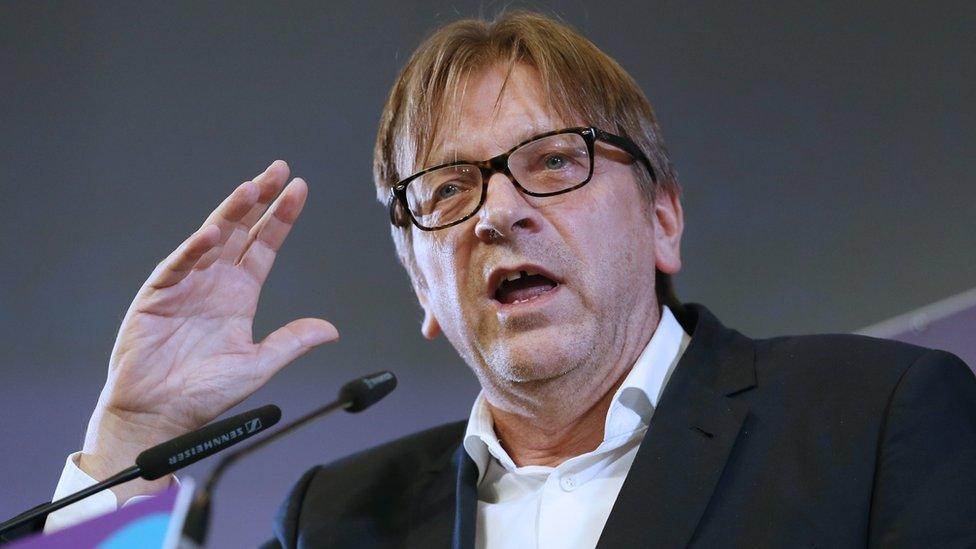
- Published20 July 2016
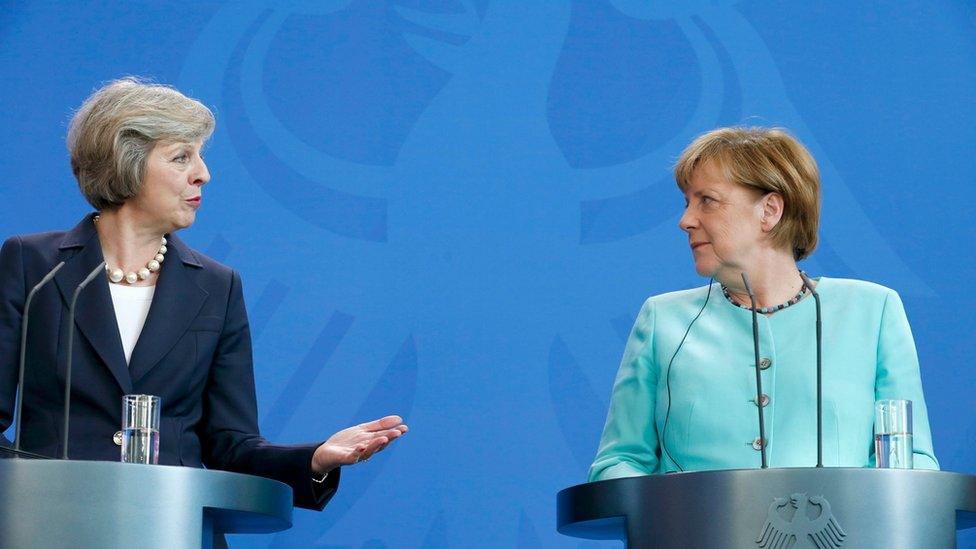
- Published15 July 2016
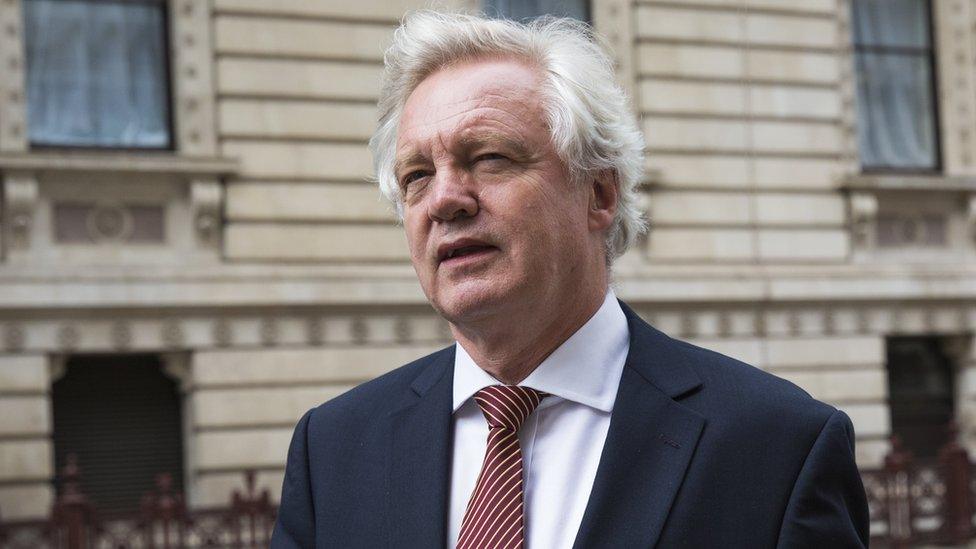
- Published30 December 2020
